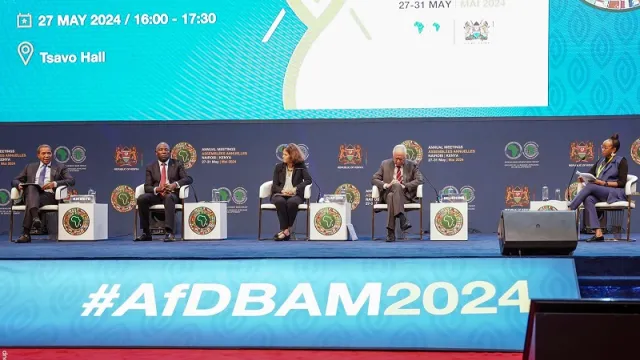Private investment vital for African tertiary education—AfDB

Private investment vital for African tertiary education—AfDB
The ongoing African Development Bank (AfDB) annual meetings in Nairobi have brought together experts, policymakers, and stakeholders to address the pressing need for increased private-sector financing in tertiary education across Africa.
During a panel discussion, former Tanzanian President Jakaya Kikwete, who serves as the Board Chair of the Global Partnership for Education, underscored the critical role of a robust educational base for the people.
Kikwete noted that strong early learning and secondary education are crucial for developing a talent pool capable of thriving in lifelong learning and contributing effectively to Africa’s future workforce. The former Tanzania President called for a renewed commitment to increasing national education expenditure to realize this objective.
The forum, headlined “Policy Dialogue on Innovative Financing for Tertiary Education in Africa: Revitalizing the Role of the Private Sector,” was organized by the AfDB in collaboration with the Kenyan government, the African Union Commission, and Deustche Gesellshaft fur Internationale Zusammenarbeit (GIZ) GmbH. The discussions explored strategies and best practices to stimulate private-sector investment in tertiary education.
The meetings also showcased successful collaborations between the private sector and educational institutions. Dr. James Mwangi, Group CEO of Equity Group, shared how partnerships with tertiary institutions have enhanced human resource development.
He explained that Equity Group, in collaboration with the Kenyan government, has provided scholarships to at least 23,000 students.
Read also: Equity’s Wings to Fly sends 1000 students soaring into High School
Prof. Mohamed Belhocine, the African Union Commissioner for Education, Science, Technology, and Innovation, said there is a need for increased investment in tertiary education. He highlighted that between 2017 and 2019, only seven African countries met the recommended 6 percent of GDP expenditure on education, with the average standing at about 4 percent.
Birgit Pickel, Director-General Africa, German Federal Ministry for Economic Cooperation and Development (BMZ), said: "This is the first Declaration of Intent between the two organizations in the field of education, and we highly welcome this collaboration. It’s a sign of our intent to scale up our joint commitment to vocational training and skills development in African countries. In light of the current challenges, this is more urgent than ever.”
Since 1975, the AfDB has committed huge resources to education and skills development, particularly in science, technology, engineering, and mathematics (STEM) at the tertiary level.
Dr. Beth Dunford, the AfDB’s Vice President for Agriculture, Human, and Social Development, said the lender has invested $964 million in tertiary education and skills development over the past 10 years.
The focus has been on strengthening Technical and Vocational Education and Training, (TVET) infrastructure and catalyzing private sector investments in job creation.
This year’s AfDB meetings have boosted Kenya as a prime destination for meetings and conferences as over 10,000 participants, out of which 5,000 are delegates attending the lender’s meetings in person.



